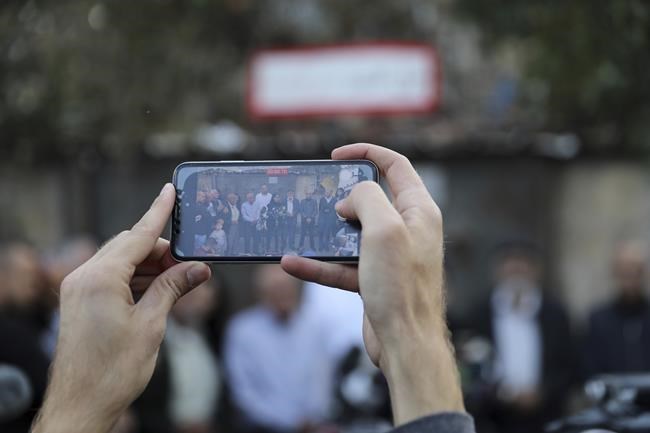JERUSALEM (AP) — Palestinian families on Tuesday rejected an offer that would have delayed their eviction by Jewish settlers in a tense Jerusalem neighborhood, where protests and clashes helped ignite the 11-day Gaza war in May.
The four families in the Sheikh Jarrah neighborhood near the Old City said their decision springs from “our belief in the justice of our cause and our right to our homes and our homeland.” They said that rather than submit to an “unjust agreement” they would rely on the “Palestinian street” to raise international awareness of their plight.
The proposal floated by Israel's Supreme Court last month would have made them “protected tenants,” blocking any eviction and demolition order for at least the next 15 years, according to Ir Amim, an Israeli rights group that closely follows developments in the city.
The families would have been able to continue arguing their case in Israeli courts. But it would have forced them to at least temporarily attest to the settlers' ownership of the properties, which could weaken the families' case going forward, and pay rent to the settlers.
The four families are among who are threatened with eviction by Jewish settler organizations in several cases that have been working their way through the Israeli court system for decades.
The settlers are making use of an Israeli law that allows them to claim properties that were owned by Jews prior to the 1948 war surrounding Israel's creation. Palestinians who lost homes, properties and lands in the same conflict do not have the right to recover them.
There was no immediate comment from the settlers, but Jerusalem Deputy Mayor Arieh King, a staunch supporter, said they had accepted the offer.
The families, who are originally from what is now Israel, say the Jordanian government granted them the land on which their homes were later built in exchange for their refugee status after it assumed control of the West Bank and east Jerusalem in 1948. ever since.
Israel has portrayed the matter as a private real-estate dispute, but the Palestinians and human rights groups view it as a coordinated attempt to push Palestinian residents out of Jerusalem and change the city's identity. The U.S. has spoken out against the evictions, saying it undermines efforts to eventually revive the long-dormant peace process.
Israel captured east Jerusalem, along with the West Bank and the Gaza Strip, in the 1967 war. The Palestinians want all three territories to form their future state and consider east Jerusalem their capital. Jordan supports their claims.
Israel annexed east Jerusalem shortly after the 1967 war and considers the entire city to be its capital, a claim not recognized by most of the international community.
The threatened evictions were one of the main drivers of protests that erupted in Jerusalem in April and May. The city, with major holy sites sacred to Jews, Christians and Muslims, is the emotional heart of the century-old Israeli-Palestinian conflict and has been the epicenter of several waves of unrest over the years.
After weeks of clashes between Palestinians and Israeli police, including at a flashpoint holy site, Gaza's militant Hamas rulers fired rockets at the city.
That set off the fourth Gaza war since Hamas seized power from rival Palestinian forces in 2007. Hamas has repeatedly warned Israel against evicting the families.
The families' decision to reject the offer sends the matter back to the Supreme Court, which could approve the evictions and pave the way for them to be carried out in the coming weeks. That would risk setting off another cycle of violence.
Ir Amim says the Israeli government has various tools at its disposal to delay or halt the evictions, but so far it has shown no indication it plans to do so.
___
Jeffery reported from Ramallah, West Bank.
Joseph Krauss And Jack Jeffery, The Associated Press




